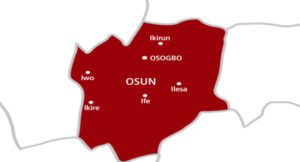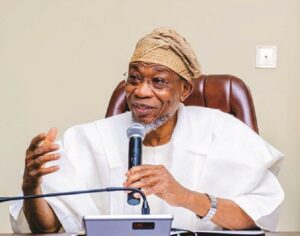


Governor Makinde’s infrastructural strides position Oyo as a prime investment hub
In recent years, Oyo State, particularly its vibrant capital city Ibadan, has emerged as a focal point for economic development in Southwestern Nigeria. Governed by Governor Makinde’s bold leadership, the state is poised to become a prime investment hub, with a strong emphasis on infrastructure development.
Makinde in his campaign promises hinged his roadmap for Accelerated Development in Oyo State on four pillars namely: Economy, Education, Healthcare and Security.
In his 2024 budget christened Budget of Economic Recovery the education sector got the highest share of N90,664,994,252 (20.88 percent); followed by infrastructure which got N74,316,325,706 (17.11 percent).
Oyo State, often referred to as the “pacesetter,” boasts a rich history dating back to its establishment in 1976 during Nigeria’s state creation exercise. Home to the prestigious University of Ibadan, founded in 1948, the state has long been a center for education and innovation in the region.
The state’s population, predominantly Yoruba-speaking, stands at an estimated 7,976,100, with Ibadan alone accounting for approximately 1.4 million residents. With such demographic vitality, Oyo State offers a fertile ground for economic expansion and investment.
Agriculture has been a cornerstone of Oyo State’s economy, dating back to the days of the historic Oyo Empire. Today, the state continues to thrive in agribusiness, producing a diverse range of commodities including oil palm, cotton, cashew, soybean, timber, plantain, and cocoa. Governor Makinde recognises the immense potential of the agricultural sector and is committed to supporting its growth as part of his broader economic agenda.
Governor Makinde’s vision for Oyo State extends beyond agriculture to encompass comprehensive infrastructure development. Recognising the crucial role of infrastructure in driving economic growth, he has pledged to prioritise the creation of safe, adequate, and efficient transport networks that can sustain the state’s social and economic advancement.

Makinde’s proactive approach to infrastructure development is a testament to his dedication to transforming Oyo State into a dynamic investment destination. By investing in key sectors such as transportation, the governor aims to attract private sector involvement and stimulate job creation, thereby fostering sustainable development and prosperity for the people of Oyo State.
The Governor’s giant strides in prioritising infrastructure not surprising for a trained engineer has opened the state to more investments. Recently the Governor was in Casablanca, Morrocco for a series of meetings with Africorp Consortium led by Chairman, Saad Berrada Sounni and CEO, Mr Jaafar Harti where the company revealed their plans to establish a multi-million-dollar factory in Ibadan with the Governor revealing that the state has already allocated land for this purpose and Africorp has paid the required fees and taken possession of the land.
One infrastructure that has been attracting investors to the state is the Ibadan Circular Road Project. Segmented into four sections – South-East Wing (32.2km), North-East Wing (20km), North-West Wing (33km) and South-West Wing (24km), the 110km project was designed to encircle Ibadan, the state capital and ease flow of traffic in the city. It will also strategically link Ibadan-Ife Expressway, the Moniya Train Station and Ilutuntun Business District being constructed by the state government as well as the Oluyole Free Trade Zone being proposed by the government, among other benefits.
Governor Seyi Makinde is completing roads started by the previous administration as well as starting construction of new road projects. Top among which are the Moniya-Iseyin Road and Ibadan Circular Road (Which he met at 5 percent completion), the dualisation of the airport road, rehabilitation of Apete-Awotan-Akufo road, and the completion Odo Ona Elewe Road (AKA Akala Way) that was abandoned by the previous administration.
One must also mention the ongoing dualisation of the 8.3 km Akobo-Ojurin/Odogbo Barracks-Olorunda Abaa Junction Road which was flagged off on Friday, 9 June 2023. The area is gradually transforming into another economic centre in the state with the almost bi-monthly influx of new businesses in the area. With the area receiving diligent attention from the Governor, investors have identified the area as a prime location to set up new businesses which in turn is generating income to the state through IGR.
Similarly, the 76.67 km Iseyin-Fapote-Ogbomoso Road was awarded by the Oyo State Government to Kopek Construction Ltd and Craneburg Construction Ltd. The Iseyin-Fapote-Ogbomoso Road is a major road project that connects the Ogbomoso and Oke Ogun Zones of Oyo State. The Iseyin End of the Iseyin-Fapote-Ogbomoso Road (handled by Kopek Construction Ltd) covers Iseyin-Apewo Village and includes a 65m span bridge. The Ogbomoso End of the Road (handled by Craneburg Construction Ltd) is from Apewo Village-Ogbomoso and includes a 45m bridge and an underpass.The Iseyin-Fapote-Ogbomoso Road provides easy access between the Ogbomoso and Iseyin campuses of the Ladoke Akintola University of Technology (LAUTECH). The Iseyin-Fapote-Ogbomoso Road project was awarded in December 2021 and is estimated to be completed by May 2024.
The Iseyin-Fapote-Ogbomoso Road is one of the major roads connecting the five zones in Oyo State. The Ibadan and Oke Ogun Zones, Oyo and Oke-Ogun Zones, and Ibarapa and Oke-Ogun Zones have been linked. The Ibadan and Ibarapa Zones are currently being linked.
Similarly the Governor has also embarked on repair of feeder roads within the Ibadan metropolis. The Governor has laid emphasis on not just building new infrastructure but maintaining existing state infrastructure.
One of the roads being re-constructed is the Iyaganku-Seventh Day-Oke Bola Junction and Olubadan Stadium Junction-Vale College-NUJ Press Centre Junction with a spur to Total Filling Station-Radio Nigeria-Kobiowu Estate Akinyemi Junction, Ring Road (3.85 km) and the Mile 110-Ring Road Mobil-Challenge Car Park (8.5 km).
The Governor also envisions the conversion of the existing domestic airport to a commercial airport.
In addition, the commissioning of bus terminals at Ojoo, Iwo road and Challenge will not only create jobs for the youths, but it will also bring sanity to the transportation sector. The Governor has given a good facelift to the state. The issues of traffic congestion in Oyo State especially in the Ibadan metropolis has also been worked on through the improvement and expansion of some key junctions.
The government is also working on establishing trailer parks across the state for ease of movement of vehicles on the road and prevention of accidents on our roads.
The Seyi Makinde-led administration’s open-door policy also enabled a lot of communities to inform that their communities have been cut off due to failed hydraulic structures. This led to the reconstruction of hydraulic structures in 4 zones across the state, through direct labor.
The Governor also embarked on a state wide installation of streetlights under the ‘Light up Oyo’ project.The consistent glow of streetlights has transformed the state, fostering a safer environment and revitalizing its nocturnal activities.
In conclusion, Governor Makinde’s ambitious agenda for Oyo State reflects a commitment to unlocking its full potential as an economic powerhouse in Nigeria. With a focus on infrastructure development, the governor’s vision holds promise for a brighter future for Oyo State and its residents.



